Do Certain Nationalities Have A Gardening Gene?
arbo_retum
13 years ago
Related Stories
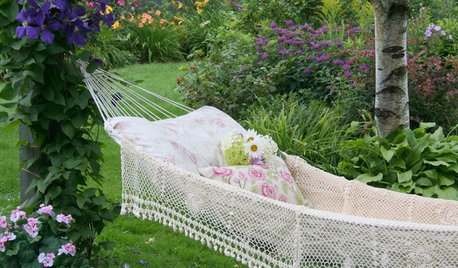
GARDENING AND LANDSCAPINGSwing Into National Hammock Day
Only one day to celebrate such a worthy pastime? Pshaw. Start on July 22 and let these photos inspire you to keep on rockin’
Full Story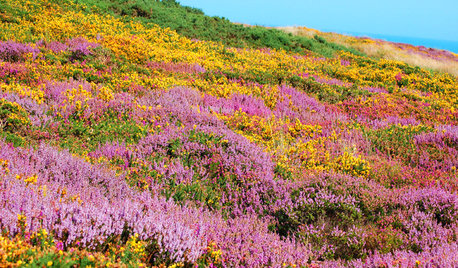
GARDENING FOR BUTTERFLIESGreat Design Plant: Scotch Heather
The moors aren't all moody, as this prettily colored evergreen shrub proves. Plant it en masse for an epic romance in your own garden
Full Story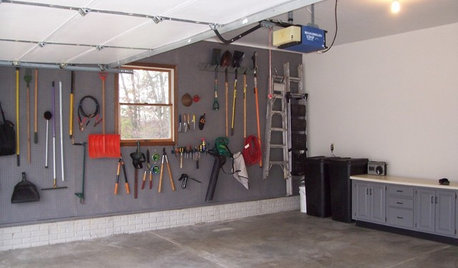
MORE ROOMS6 Garage Organizing Tips That Really Work
National Clean Out the Garage Day: Here's how to clear the clutter and organize what's left
Full Story
GARDENING FOR BUTTERFLIESGreat Design Plant: Red Bird-of-Paradise Soars With Color
Fiery bursts of red-orange flowers bring hot summer gardens to life, while this shrub's drought tolerance keeps the living easy
Full Story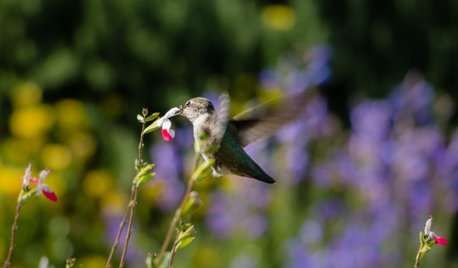
GARDENING GUIDESAttract Hummingbirds and Bees With These Beautiful Summer Flowers
Roll out a welcome mat for pollinators to keep your landscape in balance and thriving
Full Story
GARDENING FOR BUTTERFLIES3 Ways Native Plants Make Gardening So Much Better
You probably know about the lower maintenance. But native plants' other benefits go far beyond a little less watering and weeding
Full Story
GARDENING GUIDESGarden Myths to Debunk as You Dig This Fall and Rest Over Winter
Termites hate wood mulch, don’t amend soil for trees, avoid gravel in planters — and more nuggets of garden wisdom
Full Story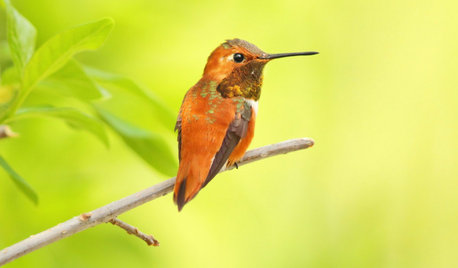
GARDENING GUIDESBackyard Birds: Invite Entertaining Hummingbirds Into Your Garden
Hummingbirds — unique to the Americas — zip through open landscapes seasonally or year-round. Here’s how to attract them
Full Story
MODERN HOMESHouzz Tour: Cape Cod’s Midcentury Modern Tradition Comes to Life
A new home nestled in the Cape Cod National Seashore area balances architectural history and modern technology
Full Story
PETS10 Tips for Keeping Indoor Cats Healthy and Happy
It's National Cat Day: Ask not what your cat can do for you (because it will ignore you) but what you can do for your cat
Full Story




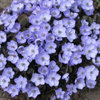
buyorsell888
aachenelf z5 Mpls
Related Discussions
National Home Gardening Club
Q
Do animal manures have certain uses?
Q
National Home Gardening Club
Q
Do you have the collector's gene?!
Q
terrene
merrygardens
flowergirl70ks
arbo_retumOriginal Author
krakatowa
coolplantsguy
diggerdee zone 6 CT
peaceofmind
arbo_retumOriginal Author
calliope
mxk3 z5b_MI
Marie Tulin
calliope
whaas_5a
conniemcghee
arbo_retumOriginal Author
calliope
arbo_retumOriginal Author
calliope
arbo_retumOriginal Author
calliope
linnea56 (zone 5b Chicago)
perennialfan273
coolplantsguy
onthebrinck
ginny12
a2zmom_Z6_NJ
dfaustclancy